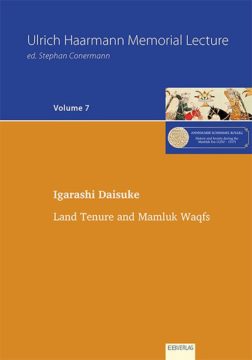The most important change in the land tenure system that occurred in Mamluk Egypt and Syria after the mid-fourteenth century was the expansion of the amount of agricultural land designated as waqf (Islamic religious endowment). This book shows how the expansion of waqf lands and the growing socio-economic influence of waqfs changed the mechanisms of Mamluk rule based on the iqṭāʻ system, a military-land system in which the rights of tax collection from arable land were allotted to the Mamluks in exchange for their military service. Through the discussion, it will become clear that, under the decline of the iqṭāʻ system, the Mamluks employed the waqf system as a vehicle for sustaining their power and rule, through which they acquired financial and social influence.
- Veröffentlicht am Sonntag 6. April 2014 von EB-Verlag
- ISBN: 9783868931518
- 57 Seiten
- Genre: Geschichte, Sachbücher, Sonstiges
